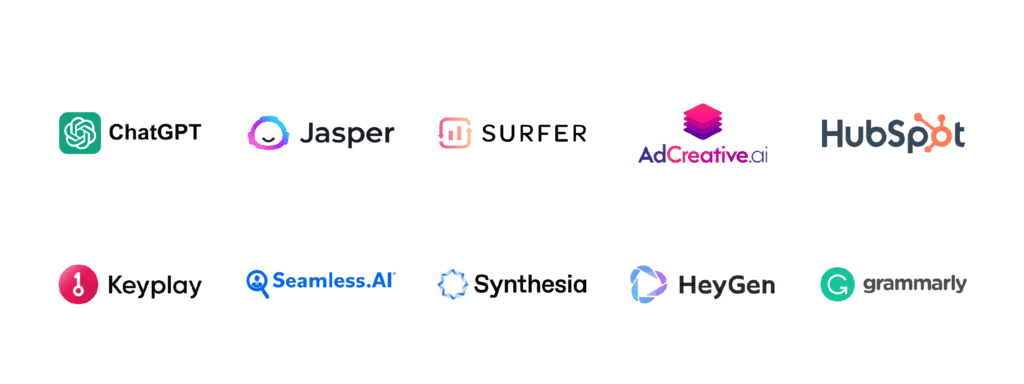Why AI Automation For B2B is vital for B2B growth
Open Performance and Development With AI Automation for B2B Firms
AI automation is changing the landscape for B2B companies. It lowers and simplifies procedures reliance on human treatment. This change enables companies to make quicker, data-driven decisions. As companies check out which processes to automate, they have to likewise consider the right devices to carry out. Obstacles stay in embracing AI technology. The ramifications of these adjustments might shape the future of many firms in methods yet to be completely understood
Recognizing AI Automation in the B2B Context
As organizations significantly look for efficiency, recognizing AI automation in the B2B context ends up being vital. AI automation involves using sophisticated technologies to simplify operations, reduce human treatment, and enhance decision-making procedures. In the B2B landscape, this can materialize in various kinds, such as automating client service communications, handling supply chain logistics, or optimizing advertising campaigns. Companies can utilize AI to examine enormous datasets rapidly, enabling them to identify fads and insights that educate critical selections. AI systems can integrate perfectly with existing technologies, offering a cohesive platform for managing business features. This understanding prepares for companies to discover exactly how AI can change their operations, improve performance, and eventually foster lasting growth in an affordable market.
Key Benefits of Applying AI Automation

Determining Procedures Suitable for Automation

Choosing the Right AI Devices for Your Service
When B2B firms think about automating their processes, selecting the best AI devices comes to be important for attaining preferred end results. Business should start by reviewing their distinct needs and purposes, guaranteeing placement with business objectives (Minarik AI). Examining the versatility, integration, and scalability capacities of possible devices is critical, as these factors determine lasting efficiency. Organizations should likewise think about user-friendliness and the level of assistance provided by suppliers, as these components can affect effective application. In addition, analyzing customer evaluations and case studies can offer understandings into how certain AI services carry out in real-world scenarios. By diligently picking AI tools that fit their functional demands, B2B companies can boost efficiency and drive development while minimizing potential interruptions
Overcoming Difficulties in AI Adoption
B2B companies frequently run into significant challenges in embracing AI technologies, specifically problems associated with data high quality and resistance to alter administration. Poor data top quality can impede the efficiency of AI systems, while employee unwillingness to embrace brand-new procedures can stall execution efforts - Growth Systems For B2B. Dealing with these obstacles is vital for successful AI combination and optimizing its prospective advantages
Data High Quality Issues
Ensuring high information high quality is crucial for the successful adoption of AI technologies in business-to-business atmospheres. Inaccurate, insufficient, or out-of-date information can badly prevent AI initiatives, leading to wrong insights and bad decision-making. Business usually deal with obstacles such as information silos, incongruities throughout different sources, and a lack of standardized data formats. To get over these concerns, organizations have to buy data cleaning, assimilation, and governance procedures. Carrying out robust information monitoring practices ensures that the details fed right into AI systems is reliable and appropriate. Cultivating a society of information top quality recognition amongst employees can boost information precision over time. By resolving information high quality worries, B2B business can release the full capacity of AI automation, driving efficiency and growth.
Adjustment Management Resistance

Gauging the Impact of AI Automation
Gauging the influence of AI automation in B2B companies requires a clear understanding of key efficiency indicators (KPIs) that align with service purposes. Reliable data analysis techniques are necessary for analyzing the outcomes, while durable ROI evaluation techniques help identify the monetary benefits of automation efforts. Together, these parts offer an extensive structure for evaluating AI's payments to organizational success.
Secret Efficiency Indicators
Key efficiency indicators (KPIs) act as necessary tools for B2B firms to assess the effectiveness of AI automation campaigns. By establishing clear metrics, organizations can measure renovations in operational efficiency, expense reduction, and income development straight attributable to automation. Typical KPIs consist of cycle time reduction, mistake prices, customer satisfaction ratings, and employee efficiency degrees. These signs give understandings into just how AI systems are optimizing procedures and improving overall performance. In addition, tracking KPIs allows companies to determine areas for further improvement and to align AI automation initiatives with calculated service goals. Inevitably, a distinct framework of KPIs guarantees that B2B companies can quantitatively examine the influence of AI automation on their procedures and drive constant development.
Information Evaluation Strategies
Efficient information evaluation techniques play a crucial duty in examining the impact of AI automation within B2B firms. By using statistical approaches, companies can recognize fads and patterns in functional data, permitting them to analyze the performance gains achieved via automation. Methods such as regression evaluation and time collection projecting provide understandings into just how AI-driven processes affect efficiency and decision-making. Furthermore, information visualization tools can efficiently interact searchings for to stakeholders, helping with informed critical choices. Artificial intelligence formulas can even more enhance evaluation by forecasting future end results based upon historic data, providing workable insights. Inevitably, these strategies make it possible for B2B business to determine success and enhance their AI automation initiatives, ensuring placement with company purposes and boosting total performance.
ROI Assessment Methods
Examining the return on investment (ROI) of AI automation is necessary for B2B business looking for to comprehend the monetary effects of their technological campaigns. Companies can use various ROI evaluation approaches to gauge the performance of AI executions - AI Automation For B2B. One efficient technique involves calculating expense financial savings by comparing functional expenditures prior to and after automation (Minarik AI). In addition, gauging productivity renovations through key performance indications (KPIs) assists quantify the benefits of AI. Customer contentment metrics can also give insights into the effect of automation on service quality. To assure a comprehensive analysis, firms ought to consider both direct economic returns and intangible advantages, such as boosted decision-making abilities and affordable advantage. This multifaceted assessment allows B2B business to make educated choices relating to future investments in AI technology
Future Trends in AI Automation for B2B Companies
What technologies lie in advance for AI automation in B2B business? Emerging trends show a significant change towards boosted information analytics capacities, making it possible for businesses to make more enlightened choices. Predictive analytics will certainly come to be increasingly essential, permitting companies to anticipate market changes and customer needs. Additionally, the combination of AI with Web of Things (IoT) technology is expected to enhance operations by supplying real-time understandings and automation of procedures. Business will additionally focus on improving consumer experiences via individualized advertising driven by AI algorithms. Improvements in natural language processing will help with better communication between clients and services. As these fads advance, B2B business need to adapt to take advantage of AI automation efficiently, making sure sustained growth and affordable benefit.
Often Asked Concerns
What Industries Benefit one of the most From AI Automation in B2B?
Manufacturing, money, health care, and logistics sectors profit the most from AI automation in B2B. These fields take advantage of AI to optimize procedures, improve decision-making, and boost general operational performance, driving substantial development and advancement.
How Does AI Automation Effect Worker Roles and Responsibilities?
AI automation reshapes employee duties and duties by enhancing recurring tasks, enabling employees to concentrate on tactical initiatives. This shift promotes ability advancement, boosts performance, and encourages cooperation, inevitably driving organizational growth and technology.
What Are Typical Mistaken Beliefs About AI Automation in B2B?
Usual misunderstandings concerning AI automation in B2B include concerns of job loss, ideas that AI can fully replace human judgment, and underestimating the significance of cooperation between AI systems and employees for suitable results.
How Can Services Make Certain Information Privacy With AI Automation?
Companies can ensure information personal privacy with AI automation by applying durable encryption protocols, adhering to regulative compliance, carrying out normal click here to read audits, and training staff members on information handling techniques to mitigate risks and safeguard sensitive info.
What Are the Expenses Connected With Applying AI Automation?
The prices linked with applying AI automation consist of software program procurement, framework upgrades, training employees, recurring upkeep, and possible downtime throughout combination. Furthermore, business may incur expenses connected to data safety and security and compliance procedures.
Determining the effect of AI automation in B2B business requires a clear understanding of key performance signs (KPIs) that align with service purposes. Trick efficiency signs (KPIs) offer as important tools for B2B companies to assess the performance of AI automation campaigns. Reliable information evaluation methods play a necessary duty in reviewing the effect of AI automation within B2B business. Assessing the return on financial investment (ROI) of AI automation is necessary for B2B companies looking for to comprehend the monetary ramifications of their technical efforts. What developments exist ahead for AI automation in B2B firms?